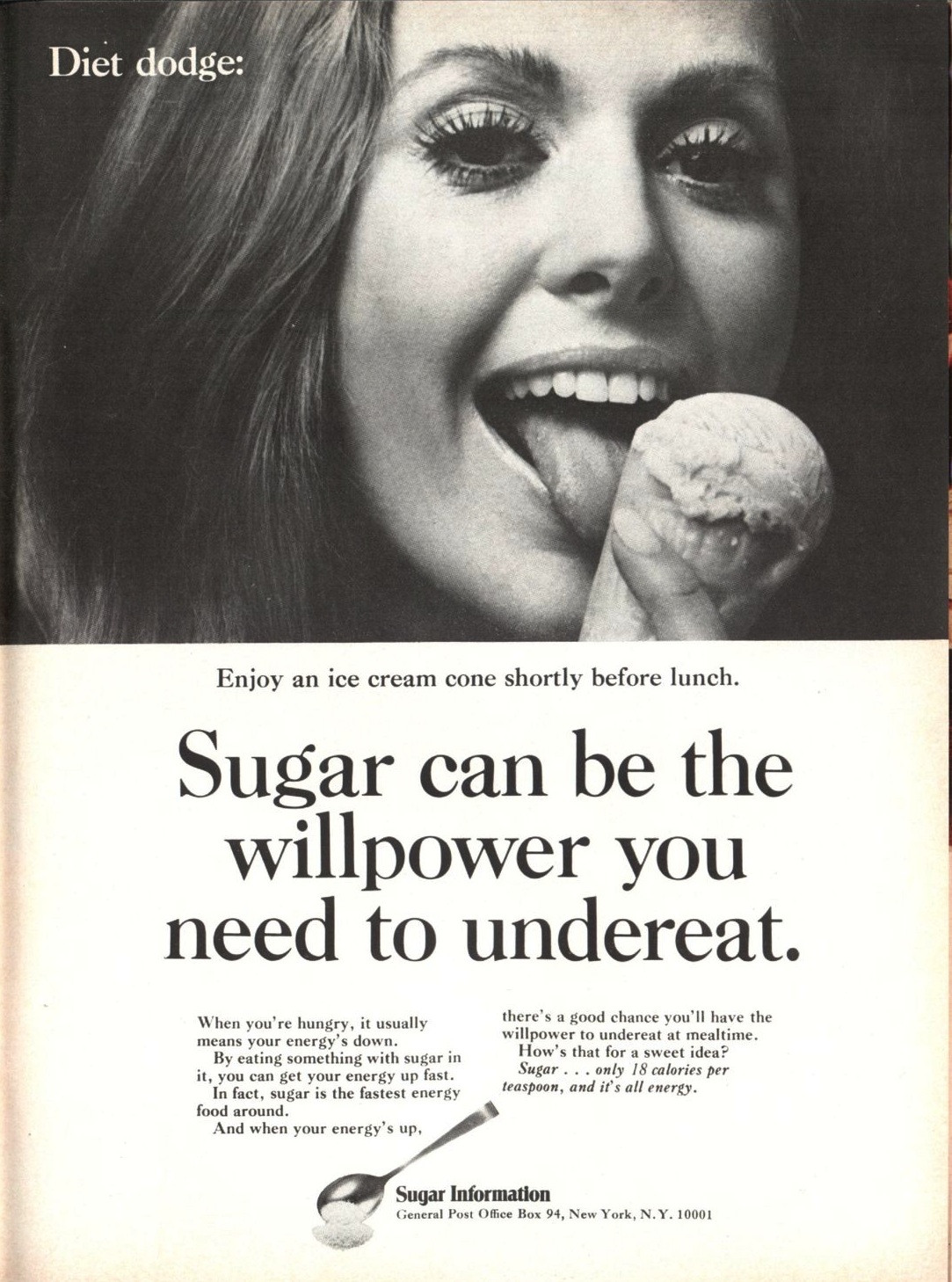
A new study showing that sugar is definitely “toxic” confirms decades of belief that sugar is not exactly good for you. As TIME pointed out back in 1942, when a wartime sugar ration commenced, dentists and doctors were well aware that sugar could be harmful—and that it wasn’t necessary in the first place. “There was no sugar in Europe until the Arabs brought their ‘sweet salt’ to Spain in 700 A.D. For centuries afterwards, sugar was regarded as a precious spice, a medicine, a rich man’s luxury,” the magazine noted. “Only recently has it been considered a food.”
But a reader of a magazine like TIME in the 1960s and early ’70s might be forgiven for thinking otherwise. As seen in the ads shown here, all of which ran in TIME during those years, the sugar industry association Sugar Information, Inc., was in the middle of a concerted effort to portray sugar as healthy.
More from TIME
The path toward the now-strange advertisements began in the mid-1950s, as health researchers spread the word that sugar could lead to weight gain. In response, the industry increased its advertising budget. (Sugar Information, Inc., even won an award in 1955 for “advertising in the public interest.”) That process ramped up in the mid-1960s, particularly as diet sodas began to increase their position in the market. Consumers should know, the sugar group countered in its ads, that diet sodas would not help consumers lose weight, because they were not satisfying or energizing in the same way that full-sugar drinks were.
The advertising campaign was largely based on the mid-century health concept of the “appestat,” an idea defined by a New York City nutritionist for a 1952 weight-loss book. A problem with “the individual’s appetite-regulating mechanism” could leave people unsatisfied and thus likely to overeat. Real sugar—as opposed to replacements—could turn down the appestat while also providing energy.
By December of 1971, however, the Federal Trade Commission stepped in to put a stop to the ads, citing the fact that though the ads suggested that eating more sugar would mean eating fewer calories overall, that was not true. (It was during this period that the FTC began asking advertisers to provide proof that their claims were true.) The Sugar Association responded initially that the ads were actually full of good health advice, which the FTC was simply misreading—but by the middle of 1972, the sugar industry group had agreed, while not conceding the FTC’s point, to spend upwards of $150,000 to run ads that clarified the earlier campaign.
TIME, as one of the publications that had run the earlier campaign, was targeted with the clarifications, like this one that appeared in February of 1973. “We hope you didn’t get the idea that our little diet tip was any magic formula for losing weight,” the ad explained, while holding firm to the line that sugar “is most definitely a good and useful food.” The ad is enough to make you think twice about that ice-cream cone before lunch—but, with all that caramel glistening in the light, you might be forgiven for skipping over the fine print and heading right to the candy shop anyway.
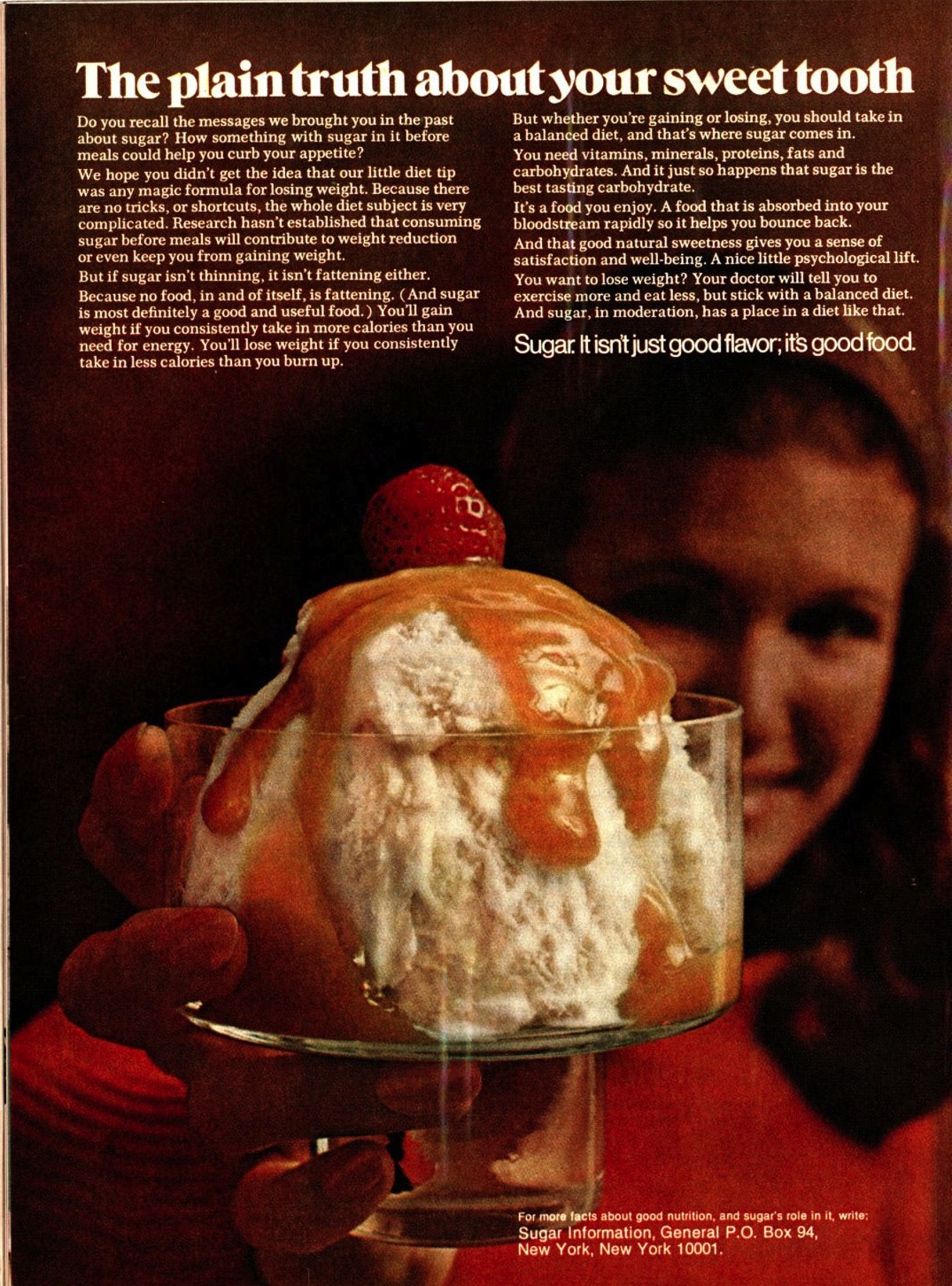
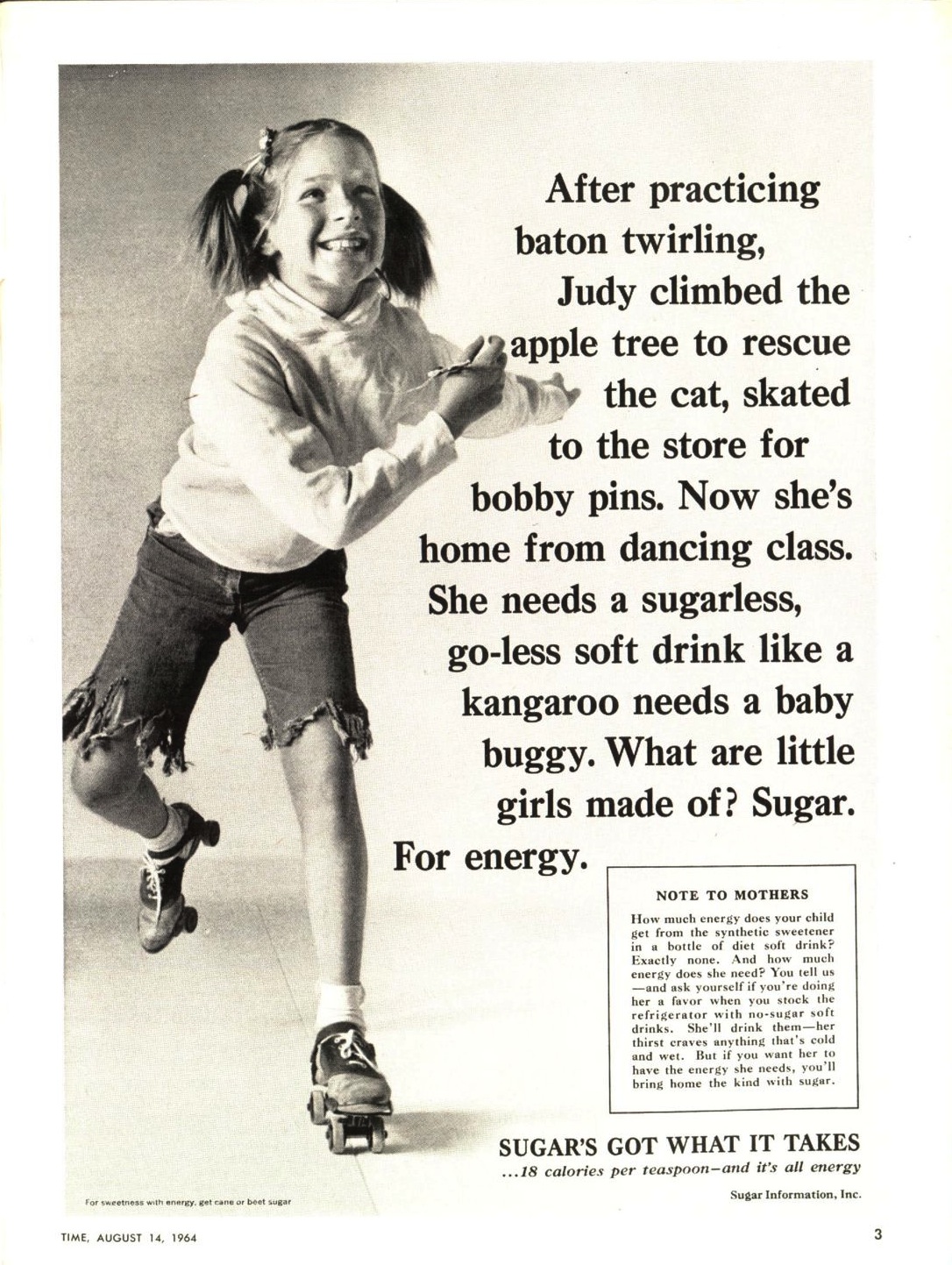
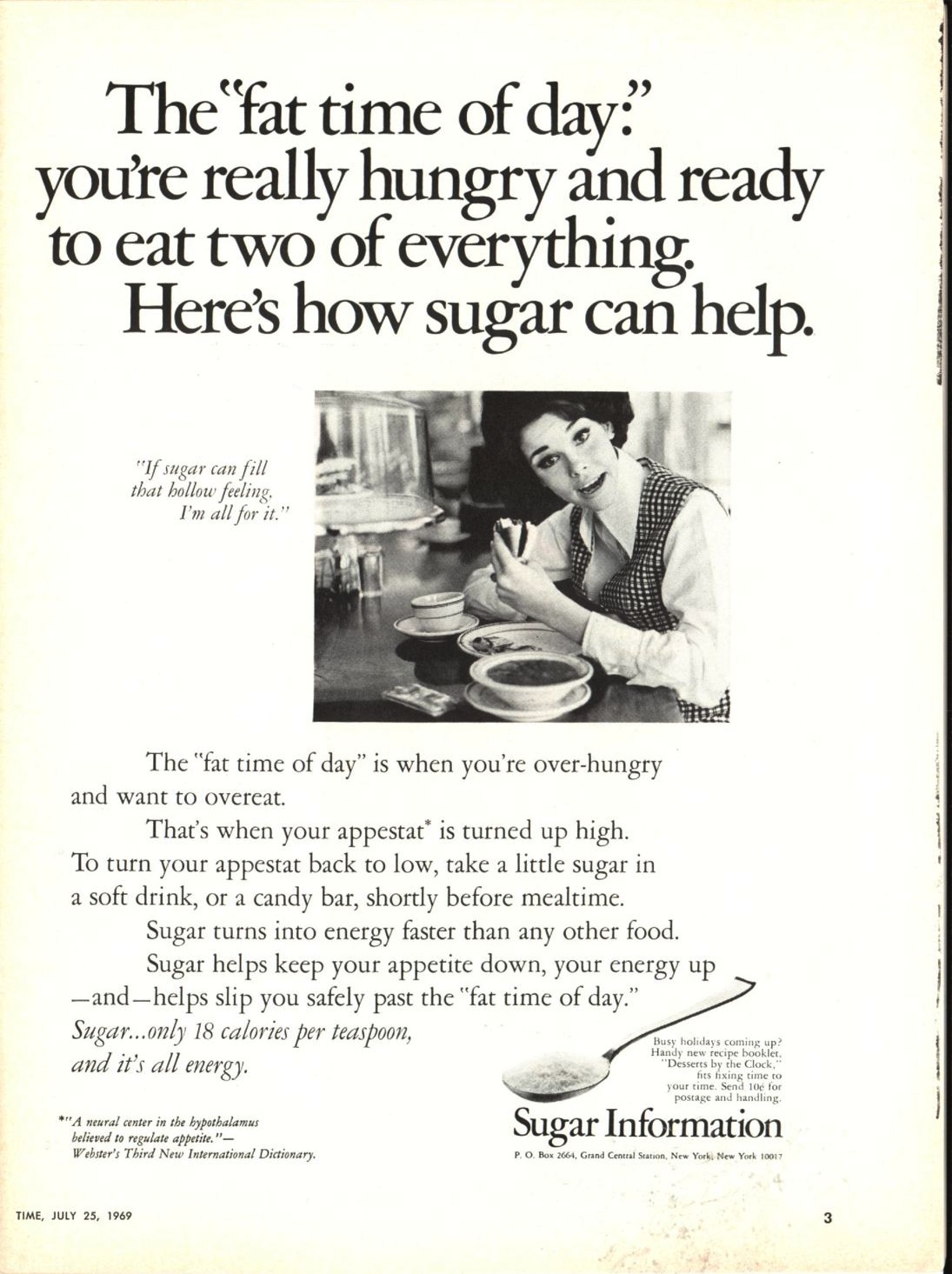
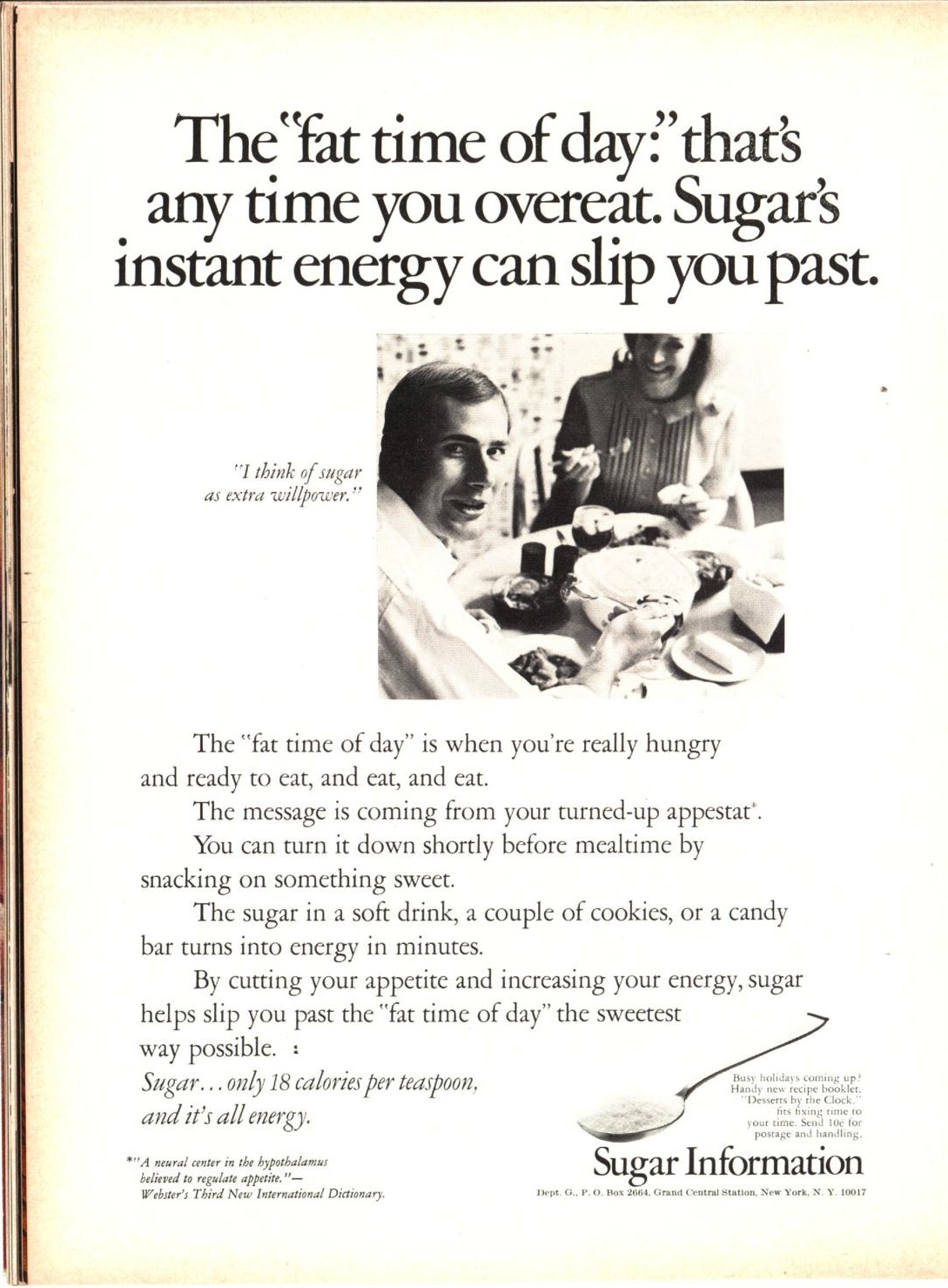
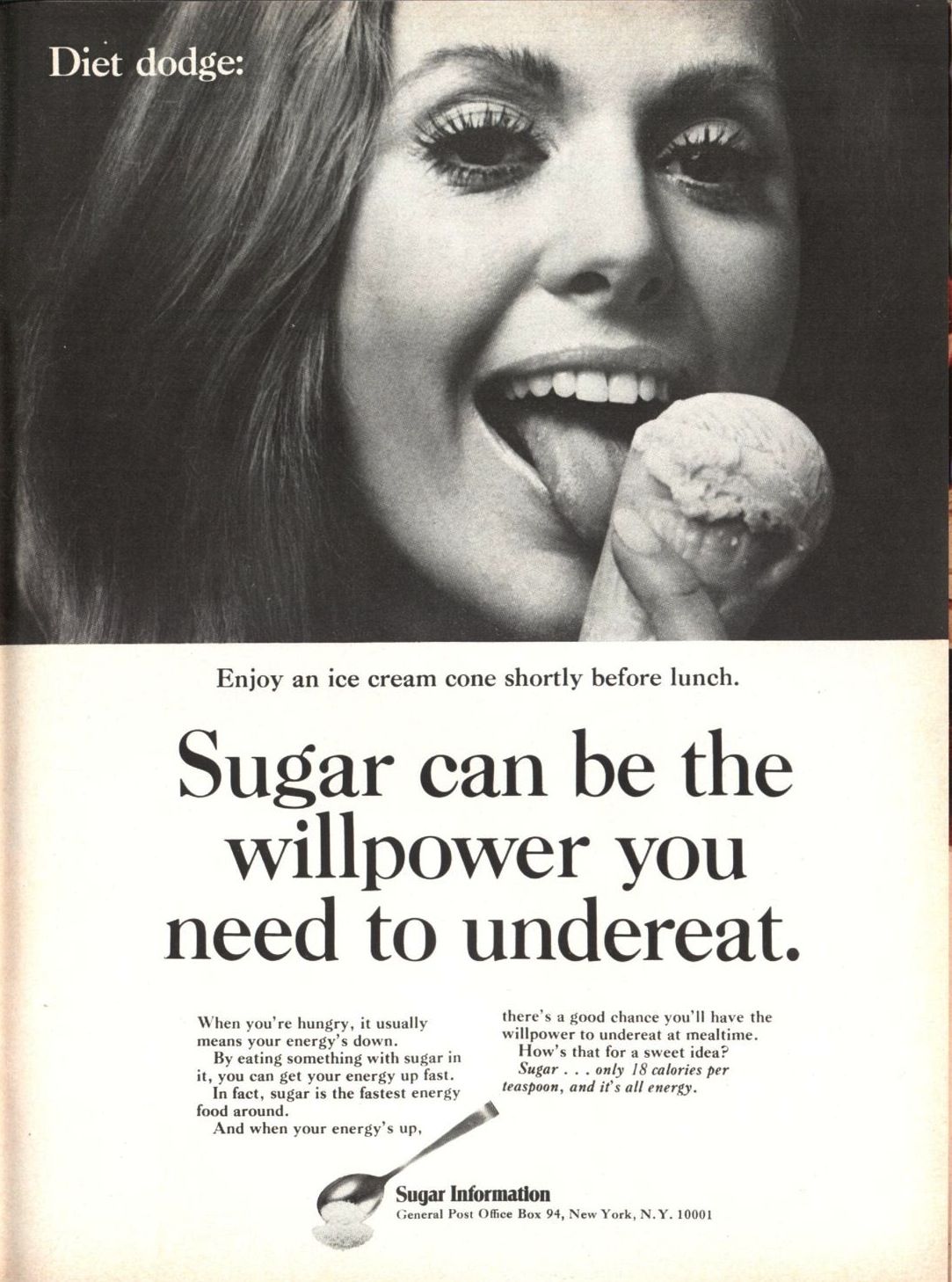
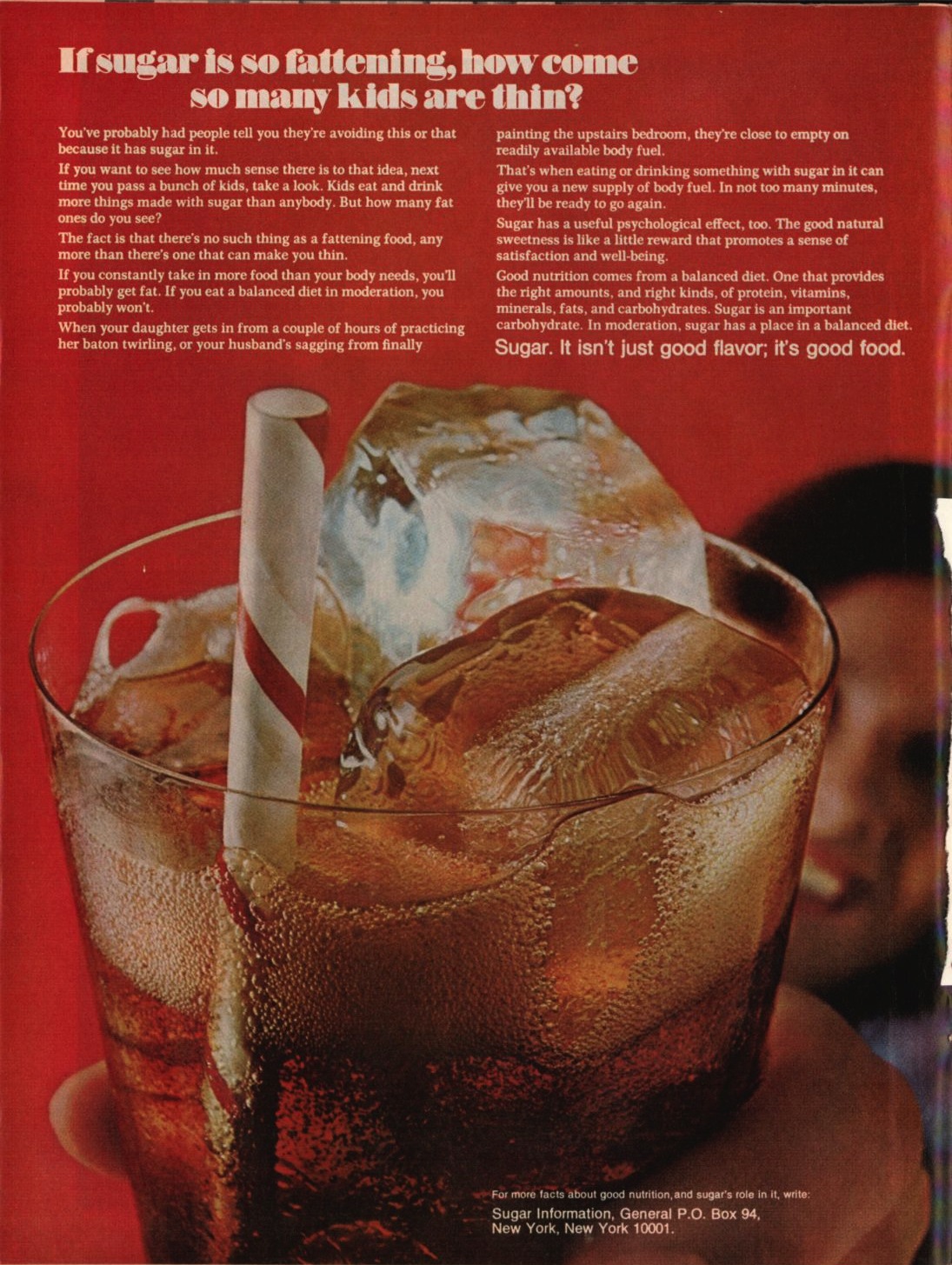
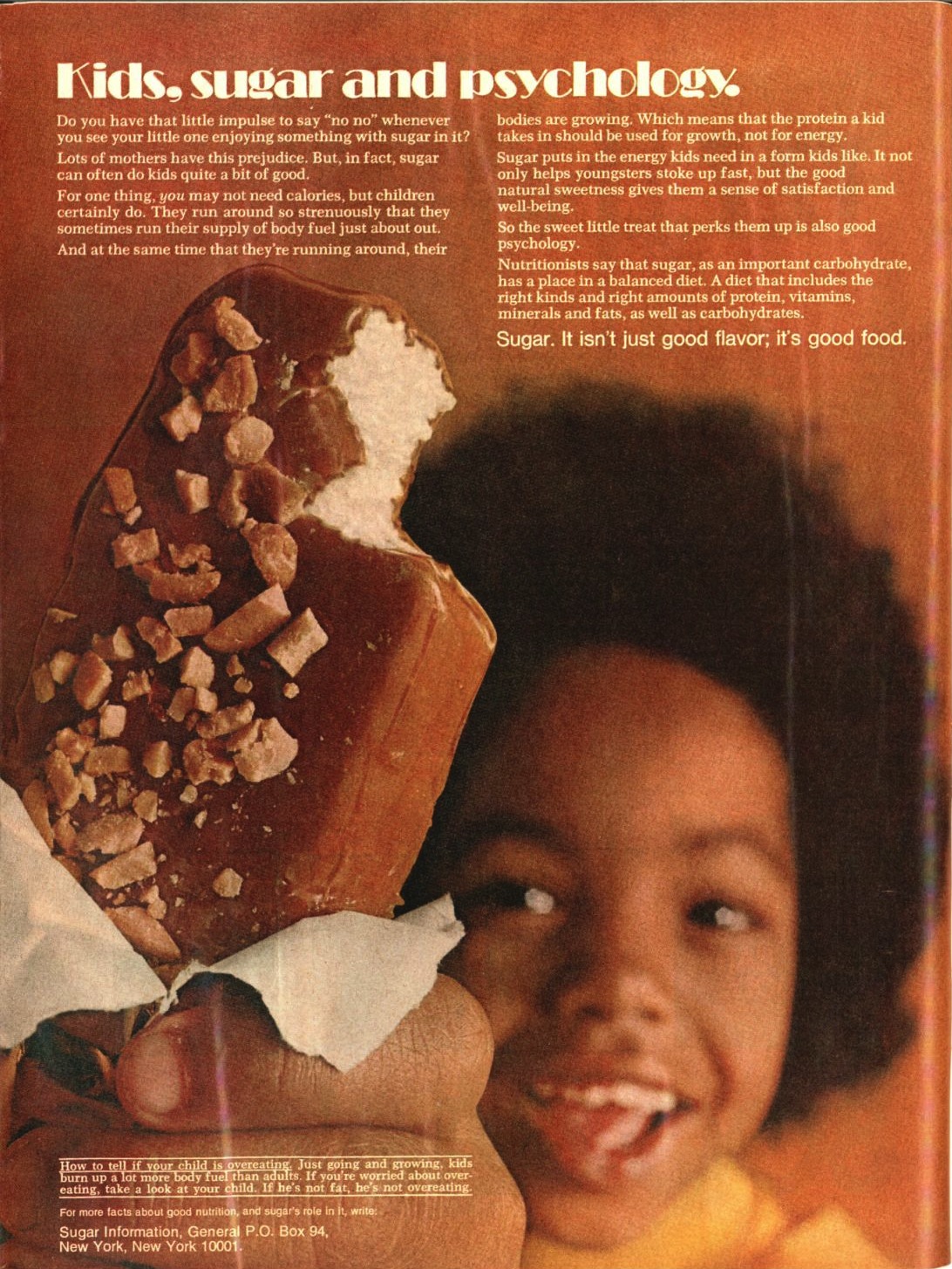
More Must-Reads From TIME
- The 100 Most Influential People of 2024
- Coco Gauff Is Playing for Herself Now
- Scenes From Pro-Palestinian Encampments Across U.S. Universities
- 6 Compliments That Land Every Time
- If You're Dating Right Now , You're Brave: Column
- The AI That Could Heal a Divided Internet
- Fallout Is a Brilliant Model for the Future of Video Game Adaptations
- Want Weekly Recs on What to Watch, Read, and More? Sign Up for Worth Your Time
Write to Lily Rothman at lily.rothman@time.com